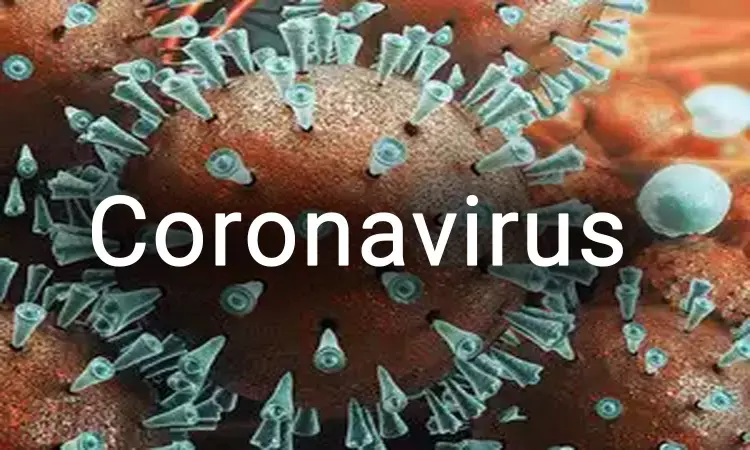- Home
- Medical news & Guidelines
- Anesthesiology
- Cardiology and CTVS
- Critical Care
- Dentistry
- Dermatology
- Diabetes and Endocrinology
- ENT
- Gastroenterology
- Medicine
- Nephrology
- Neurology
- Obstretics-Gynaecology
- Oncology
- Ophthalmology
- Orthopaedics
- Pediatrics-Neonatology
- Psychiatry
- Pulmonology
- Radiology
- Surgery
- Urology
- Laboratory Medicine
- Diet
- Nursing
- Paramedical
- Physiotherapy
- Health news
- Fact Check
- Bone Health Fact Check
- Brain Health Fact Check
- Cancer Related Fact Check
- Child Care Fact Check
- Dental and oral health fact check
- Diabetes and metabolic health fact check
- Diet and Nutrition Fact Check
- Eye and ENT Care Fact Check
- Fitness fact check
- Gut health fact check
- Heart health fact check
- Kidney health fact check
- Medical education fact check
- Men's health fact check
- Respiratory fact check
- Skin and hair care fact check
- Vaccine and Immunization fact check
- Women's health fact check
- AYUSH
- State News
- Andaman and Nicobar Islands
- Andhra Pradesh
- Arunachal Pradesh
- Assam
- Bihar
- Chandigarh
- Chattisgarh
- Dadra and Nagar Haveli
- Daman and Diu
- Delhi
- Goa
- Gujarat
- Haryana
- Himachal Pradesh
- Jammu & Kashmir
- Jharkhand
- Karnataka
- Kerala
- Ladakh
- Lakshadweep
- Madhya Pradesh
- Maharashtra
- Manipur
- Meghalaya
- Mizoram
- Nagaland
- Odisha
- Puducherry
- Punjab
- Rajasthan
- Sikkim
- Tamil Nadu
- Telangana
- Tripura
- Uttar Pradesh
- Uttrakhand
- West Bengal
- Medical Education
- Industry
Paper based wastewater test could provide early warning of COVID-19

Rapid testing kits using paper-based devices are being developed that could be used on-site at wastewater treatment plants to trace sources and determine whether there are potential COVID-19 carriers in local areas.
Researchers at Cranfield University are working on a new test to detect SARS-CoV-2 in the wastewater of communities infected with the virus.
The wastewater-based epidemiology (WBE) approach could provide an effective and rapid way to predict the potential spread of novel coronavirus pneumonia (COVID-19) by picking up on biomarkers in faeces and urine from disease carriers that enter the sewer system.
Dr Zhugen Yang, Lecturer in Sensor Technology at Cranfield Water Science Institute, said: "In the case of asymptomatic infections in the community or when people are not sure whether they are infected or not, real-time community sewage detection through paper analytical devices could determine whether there are COVID-19 carriers in an area to enable rapid screening, quarantine and prevention.
"If COVID-19 can be monitored in a community at an early stage through WBE, e?ective intervention can be taken as early as possible to restrict the movements of that local population, working to minimise the pathogen spread and threat to public health."
Recent studies have shown that live SARS-CoV-2 can be isolated from the faeces and urine of infected people and the virus can typically survive for up to several days in an appropriate environment after exiting the human body.
The paper device is folded and unfolded in steps to filter the nucleic acids of pathogens from wastewater samples, then a biochemical reaction with preloaded reagents detects whether the nucleic acid of SARS-CoV-2 infection is present. Results are visible to the naked eye: a green circle indicating positive and a blue circle negative.
"We have already developed a paper device for testing genetic material in wastewater for proof-of-concept, and this provides clear potential to test for infection with adaption," added Dr Yang. "This device is cheap (costing less than £1) and will be easy to use for non-experts after further improvement.
"We foresee that the device will be able to offer a complete and immediate picture of population health once this sensor can be deployed in the near future."
WBE is already recognised as an effective way to trace illicit drugs and obtain information on health, disease, and pathogens. Dr Yang has developed a similar paper-based device to successfully conduct tests for rapid veterinary diagnosis in India and for malaria in blood among rural populations in Uganda.
Paper analytical devices are easy to stack, store and transport because they are thin and lightweight, and can also be incinerated after use, reducing the risk of further contamination.
For more details click on the link: http://dx.doi.org/10.1021/acs.est.0c01174
Hina Zahid Joined Medical Dialogue in 2017 with a passion to work as a Reporter. She coordinates with various national and international journals and association and covers all the stories related to Medical guidelines, Medical Journals, rare medical surgeries as well as all the updates in the medical field. Email: editorial@medicaldialogues.in. Contact no. 011-43720751
Dr Kamal Kant Kohli-MBBS, DTCD- a chest specialist with more than 30 years of practice and a flair for writing clinical articles, Dr Kamal Kant Kohli joined Medical Dialogues as a Chief Editor of Medical News. Besides writing articles, as an editor, he proofreads and verifies all the medical content published on Medical Dialogues including those coming from journals, studies,medical conferences,guidelines etc. Email: drkohli@medicaldialogues.in. Contact no. 011-43720751


